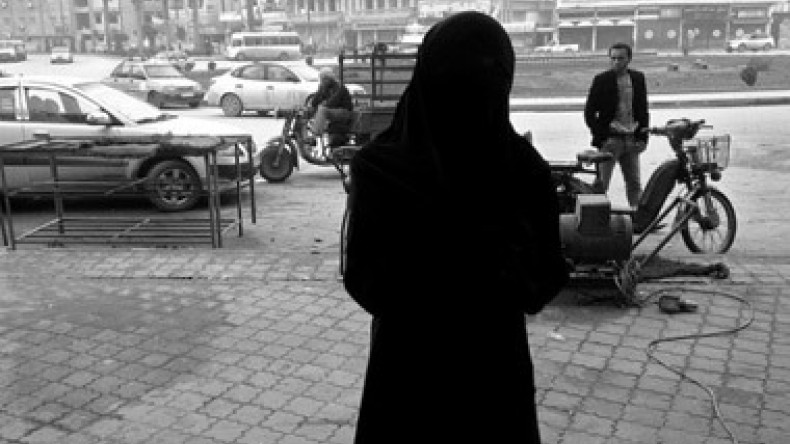
More than 6000 women became victims of torture and abuse in Syrian war
More than 6000 women have been raped since the start of the Syrian conflict in March 2011 by confronting groupings, the Euro Mediterranean Human Rights Network (EMHRN) says, according to the Voice of Russia.
According to the organization’s statement, women in many cases have to flee the country as they become socially stigmatized. They are also being targeted by snipers and used as human shields, often with their children, the report also says.
"They are being used as privilege, not in the sense that they are favoured, but because sometimes of their relationship to opposition members or government-related members," EMHRN spokeswoman Hayet Zeghiche told the BBC.
"They are deliberately targeted because of political issues and also because they are vulnerable victims."
The report says the kidnapping of women has also become a strategy of exchanging prisoners and exacting revenge, and that the nature of the crimes - rape and gang-rape - leaves many women isolated.
EMHRN states that it is difficult to get a comprehensive picture of this phenomenon in the Syrian context as a number of challenges hamper documentation of violence against women (VAW) in this warfare. Also a majority of victims refuse to speak about violence they have been exposed to, in particular when the offense has a sexual dimension as they fear social stigma attached to these abuses.
Moreover, families are often reluctant to report on abuses such as kidnappings and arrests of their daughters or relatives because of the widespread perception that arrested females are raped and harassed in prison.
In addition, there is nowadays in Syria an overwhelming lack of confidence in the utility of documenting violations, given the fact that the work conducted so far by human rights organizations has barely impacted the stand of the international community despite more than two years of a violent conflict marked by repeated patterns of devastating violations and crimes under international law.
Syrian women exposed to sexual abuses subsequently found themselves victimized not only by the crime itself, but also by enduring the silence that surrounds the crime and the social pressure related to it.
Rumors of unverified sexual assaults have increasingly spread in Syria, creating a climate of terror for inhabitants and particularly women.
Kholod, a women from Homs who got abducted and subsequently released described the terror experienced in her community in summer 2012 as raids multiplied in the context of the assault on the old quarters of Homs of Baba Amr and Karm Al-Zaytoun.
“We got used to wear several layers of clothing for fear of rape,” she said.
She also describes threats of sexual violence in detention and the stigmatization faced by girls abducted after they get released.
She said “During my detention political security officer told me that he was holding 17 women prisoners in our home in Bab Al-Dreb neighborhood (…) He said they were abducted during the raids he carried out and that he raped all of them. (...) When I asked about the crime that these girls committed, he said that he wanted to rape them and humiliate their families. He also said he allowed his men to gang-rape a woman and to videotape the “party” as he called it, so that he would send the video to her uncle, a well-known cleric and member of the opposition.”
Lamya, a student from Latakia was arrested with her father in June 2012 during a military intelligence raid on her house. Accused of equipping field hospitals with supplies, she was detained for eight months during which she was exposed to severe acts of torture.
“During my interrogation, with my father still present, the investigator threw coffee at me, and my father was unable to do anything to help me. As my interrogation proceeded and my father was no longer present, I was beaten on the hands and legs, spat at and whipped to the point of collapsing. Every time I collapsed, someone would pour a bottle of cold water on my head to revive me. The interrogations sometimes lasted for 12 continuous hours and more,” she said.
EMHRN also tells a story of Aida, a 19 year old woman from Tartous. She belongs to a family known to be close to the Muslim brotherhood.
The woman was arrested in October 2012 by military security apparatus in Tartous governorate.
She reports that during her detention period she witnessed sexual humiliations and abuses and was exposed to rape on two separate occasions.
She was transferred to several successive detention facilities, including Brigade 215 of Damascus military security branch, Barzah Branch and Homs Central Prison. Aida was raped by three security members before being referred to Tartous civil judiciary court. As she was detained at Palestine Branch 235, one of the technical branches of the Military Intelligence Division in Damascus, she reports having been raped by two members in the security forces.
Finally transferred to Adra Prison in East Damascus, Aida was released after 160 days of detention.
The civil war took lives of more than 100,000 people and more than two million Syrians have fled the country.
Newsfeed
Videos






























